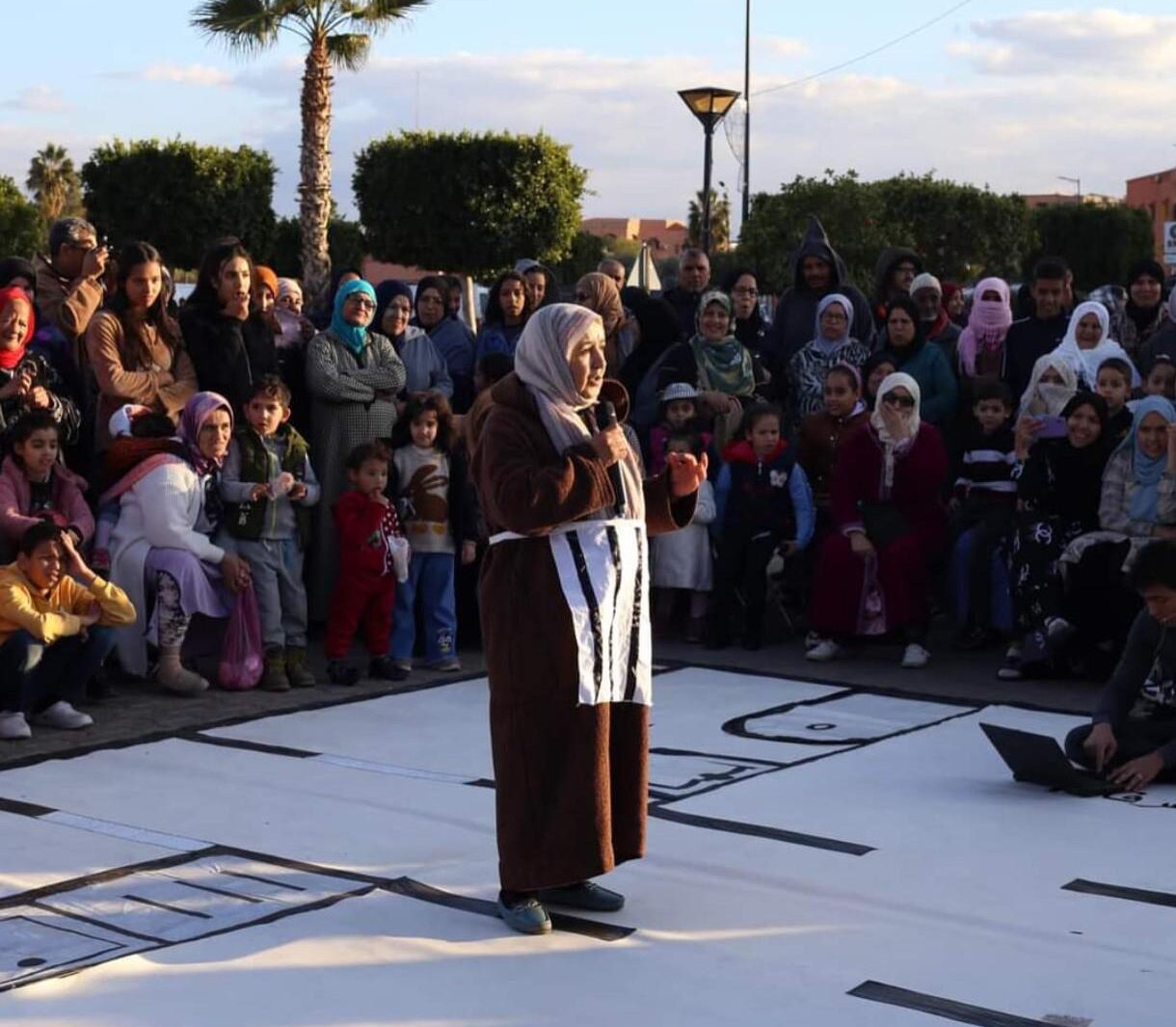Two decades after Morocco’s revised family law offered improved—but still limited—rights to women, feminist activists are pushing for bold new reforms and greater gender equality.

Morocco’s personal status and family law—the Moudawana—is a legal code that regulates everything from marriage and divorce to inheritance and child custody. Since being rewritten in 2004, it has been hailed as one of the most progressive family laws in the Arab world. But implementation of the revised code has left much to be desired, and gender inequality remains entrenched in Moroccan law and society—from widespread child marriage to deeply unequal inheritance rights.
Now, as the monarchy considers new revisions to the Moudawana, grassroots women’s rights activists supported by the Fund for Global Human Rights are calling for sweeping reforms to end gender-based injustice in Morocco.
A History of Reform
Morocco’s first family code was written in 1956, as the newly independent nation emerged from decades of French colonial rule. Under the French protectorate, family matters—including marriage, divorce, and inheritance—had been decided by religious Sharia courts. The first Moudawana, drafted by ten male religious scholars, drew substantially from Islamic law and codified the patriarchal structure of families while affording women limited social rights.
After decades marked by incremental reforms to the family code, public pressure and mass demonstrations in 2000 prompted Moroccan King Mohammed VI to form a commission to rewrite the archaic law. The new family code was ratified by Parliament in 2004 and hailed by the international community as one of the most progressive in the Arab world.
The new reforms marked a historic breakthrough for women’s rights activists, who had successfully called for several landmark provisions—including a woman’s right to file for divorce, greater freedom to travel, and the right to self-guardianship. But despite the progress, Moroccan society remains deeply unequal. The Moudawana still allows for underage marriage—according to Girls Not Brides, 14 percent of girls in Morocco are married before they turn 18. The law also entitles women to less inheritance. Female heirs receive half as much inheritance as male heirs, and widows or only daughters must share their inheritance with distant male relatives of their deceased husband or father. Men also automatically receive custody of children after a divorce.
In September 2023, after two decades of tireless advocacy by women’s rights organizations—including many supported with long-term flexible funding by the Fund, like El Amane Association in Marrakech—the king ordered the formation of a new commission to review the law and consider revisions. Six months later, in April 2024, the commission submitted its proposal to the head of government. Leaked recommendations reportedly include simplified divorce proceedings, new provisions governing inheritance, and other reforms to marriage and guardianship.
As the country awaits the king’s final decision on the commission’s proposals, feminist activists are continuing to fight for equal rights under the law—and inspiring other activists in the region to call for similar reforms.
The Campaign for Equality
Israr, a coalition of more than 30 Moroccan women’s rights leaders and organizations, has been advocating for years for women’s equality and economic autonomy. The group’s efforts were instrumental in passing a landmark law on violence against women in 2018, which criminalized domestic violence and provided resources for survivors.
Since the king announced the formation of the a commission to revise the Moudawana, Israr has launched an intensive campaign to influence the resulting reforms. Through press interviews, social media, and a memorandum submitted directly to the commission, the coalition has made the case for key revisions including an end to child marriage, the abolishment of male guardianship by default, and stronger mechanisms for enforcement of the law. Their advocacy, which is deeply informed by international human rights law, offers a bold way forward for Moroccan jurisprudence.
“The importance of reforming the family code stems, first, from our firm convictions that Morocco still needs to enact fair laws that guarantee equality,” says Maryam Al-Zammouri, the head of the coalition. “We in the Israr alliance hope to achieve actual gender equality by establishing gender-responsive public policies, laws, and practices that guarantee rights and freedoms.”
But the women’s rights movement faces vocal opposition from Islamist political parties and religious conservatives, who have already decried the leaked recommendations for contravening Islamic law. A recent survey found that nearly 80 percent of Moroccans believe that reforms should be based in Islamic law. And King Mohammed VI—who is both the head of state and a figure of religious authority—has previously stressed that he “will not permit what God has forbidden” or “forbid what God has allowed.”
As a country that is widely seen to be among the most progressive in the Middle East and North Africa, Morocco’s fight for women’s rights could be a learning moment for gender justice movements in the region. Activists in neighboring and nearby countries are watching closely, as they consider their own campaigns for equality.
But for women’s rights activists in Morocco, like Maryam from Israr, the fight for her fundamental freedoms will continue no matter the commission’s decision.
“We believe in the philosophy of equality without reservation,” she says. “Any violation, discrimination, or breach of provisions [of international agreements] is a violation of the universal rights of women.”
Sign up to our newsletter
Add some impact to your inbox.
By submitting this form, you accept that your data will be stored and processed in line with our Privacy Policy.


